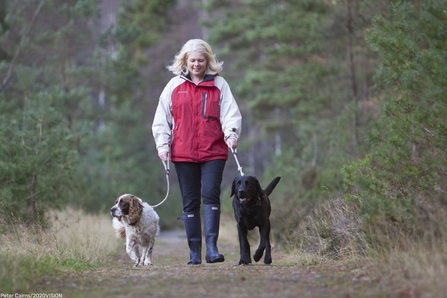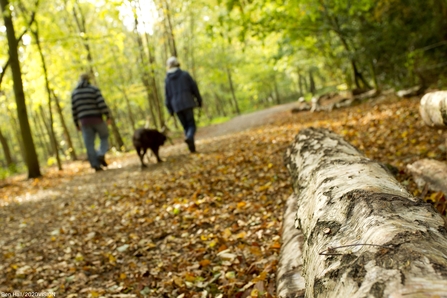The Wildlife Trusts are urging dog owners to keep their pets on short leads now that birds are nesting, species are emerging from hibernation and to protect grazing livestock.
Experts say loose dogs are one of the biggest causes of wildlife disturbance – this is particularly problematic when many species are breeding and vulnerable either on or near the ground.
Ground-nesting birds* such as curlew, corn bunting and skylark, are particularly at risk. Research shows that 66% of ground-nesting birds are in decline in the UK, compared to 31% of other species.
Dogs can also be a threat to sheep, cows and other grazing livestock, with regular problems reported on land owned by Wildlife Trusts. Dog waste, too, is dangerous for wildlife as it can carry diseases, scare away animals and fertilise soils, affecting the natural balance of fragile habitats.
Dog owners can help wildlife if they:
-
Keep dogs on short leads on nature reserves and the wider countryside
-
Clean up after animals and dispose of dog waste in bins or at home
-
Avoid using nature reserves if walking large groups of dogs
Many of The Wildlife Trusts’ 2,400 nature reserves welcome responsible dog walkers but instances of loose dogs disturbing wildlife and livestock have led the charities to issue a plea ahead of spring.
Wild places with particularly sensitive habitats or species may be closed to dogs. Some beaches have cordoned-off areas to protect rare birds that nest on pebbles or in the sand.


